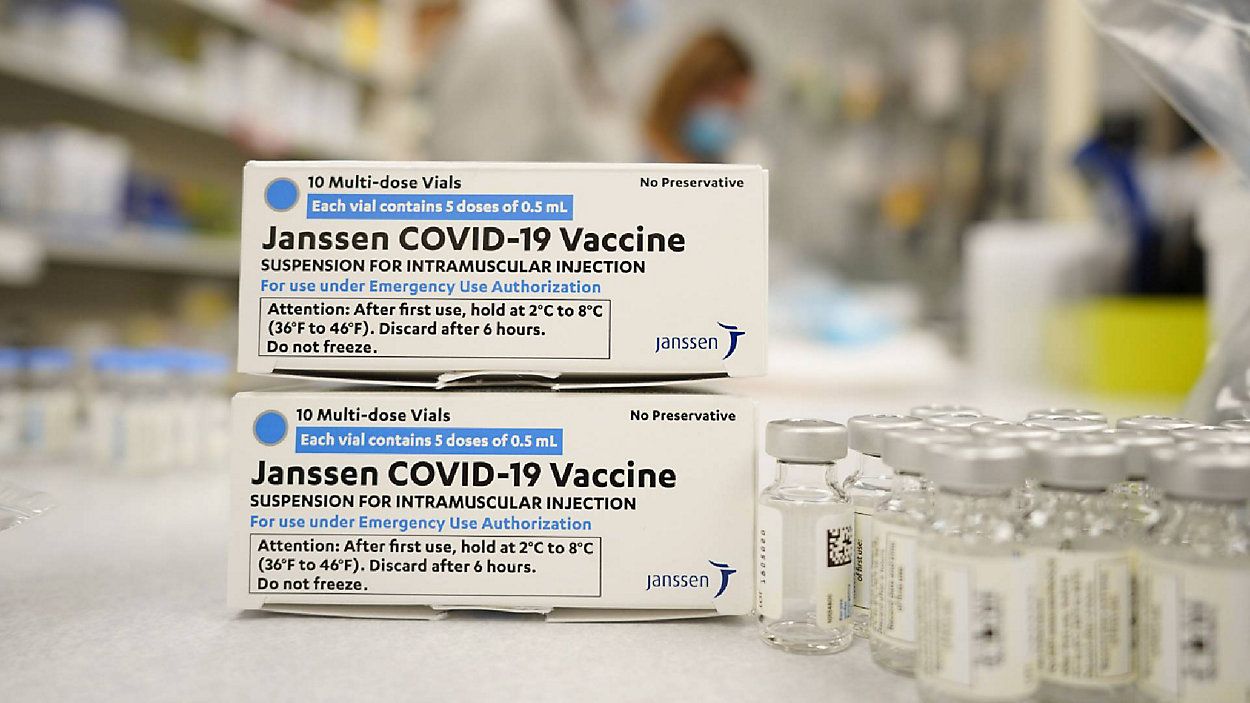Health officials said Wednesday that they were working to replace scheduled Johnson & Johnson appointments with the Pfizer and Moderna shots, and they said the U.S. has plenty of supply to continue vaccinating Americans at its current pace.
Members of the White House’s COVID-19 Response Team also ensured Americans that vaccinations remain safe and critical, despite the rare reports of blood clots that led to a pause in the administration of the J&J shot.
On Wednesday, officials admitted that there would be some short term impact in the number of daily vaccinations as sites adjust away from the J&J vaccine to replace it with Pfizer and Moderna.
But COVID-19 Response Coordinator Jeff Zients said the federal team was working with states and other partners to accelerate the process while continuing to nationally distribute the other vaccines as scheduled.
“I want to be clear that we have more than enough Pfizer and Moderna vaccine supply to continue or even accelerate the current pace of vaccinations and meet the president's goal of 200 million shots by his 100th day in office,” Zients said in a briefing.
The U.S. has so far purchased 300 million shots of each of the two-dose vaccines for a total of 600 million doses, more than enough to vaccinate all U.S. adults.
In March, the federal government bought 100 million doses of the Johnson & Johnson shot, and more than seven million people have gotten the vaccine so far.
To address the J&J shot’s safety, a Centers for Disease Control and Prevention panel was scheduled to meet Wednesday afternoon to review the vaccine’s data and vote on new recommendations for its use.
CDC Director Rochelle Walensky said Wednesday that the six reported cases of blood clots are extremely rare, especially for people who got the J&J vaccine more than a month ago. She said people who received the vaccine more recently should monitor their symptoms just in case.
“I know the information we have presented may be very concerning to Americans, especially those who have already received the Johnson and Johnson vaccine,” Dr. Walensky said. “But also I want to reiterate to this group: Even in this group, these events are extremely rare.”
Walensky also noted that the Pfizer and Moderna vaccines have not been linked to any similar conditions.
Officials stressed that the Johnson & Johnson pause should not discourage Americans from getting vaccinated when it is their turn. They pointed to the administration’s continued vaccine confidence campaign as the main way they are addressing vaccine hesitancy.
Members of the COVID-19 Response Team also reiterated that the Johnson & Johnson pause is evidence that the United States’ safety detection system is working.
“I want to share with you my confidence in the system that we have in place. Jointly, CDC and FDA were able to identify these rare events and act quickly to alert health care providers and the public,” Dr. Walensky said in a Wednesday briefing.
“It should reinforce, in those individuals, how we take safety so seriously,” said Dr. Anthony Fauci, the president’s chief medical adviser.
By April 19, the vaccines will be open to all Americans 16 or older after President Biden moved up the timeline last week.
The U.S. is distributing 28 million doses of vaccine this week, and they plan to continue increasing distribution as needed.



